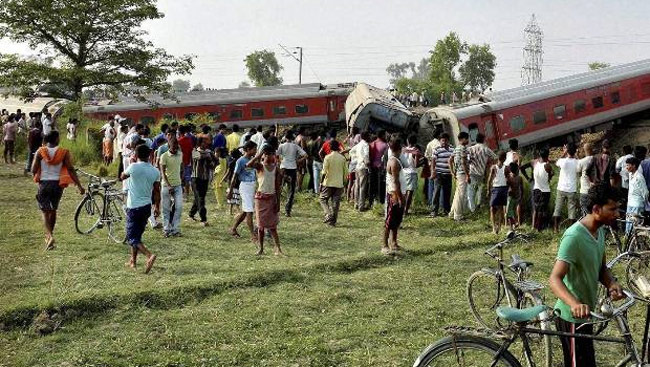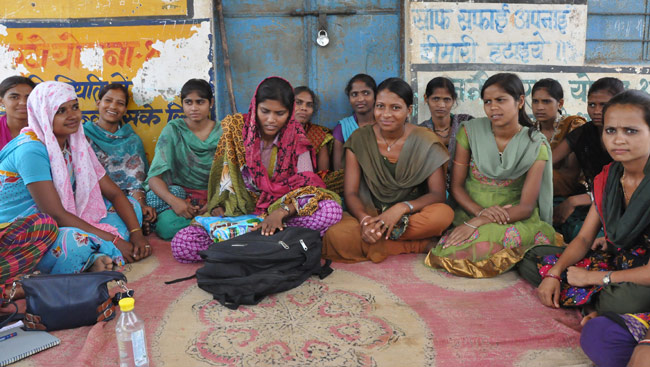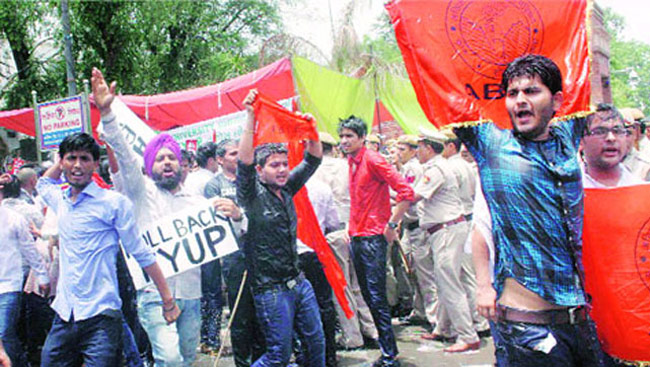The Supreme Court on Thursday ruled that the plea of artistic freedom could not be advanced to justify attribution of vulgar and obscene expletives to Father of the Nation Mahatma Gandhi.
It said it was the collective responsibility of the nation to respect Gandhi.
"Is it not a collective responsibility of the nation to respect Mahatma Gandhi. You cannot respect an ideal but vulgarise the man who gave the ideal in the garb and guise of artistic freedom," the apex court bench of Justice Dipak Misra and Justice Prafulla C. Pant said.
The court said this as it reserved verdict on a petition by Devidas Ramachandra Tuljapurkar -- editor and publisher of a bulletin magazine of All India Bank Employees Association -- who has challenged filing of a case against him by the Patit Pawan Sanghtan for publishing in 1994 a poem by Marathi poet Vasant Dattatray Gujjar 'Gandhi Mala Bhetla Hota' (I met Gandhi) that was written in 1984 and allegedly attributed some obscene and vulgar expletives to Father of the Nation.
As senior counsel Gopal Subramanium sought to defend the poet, saying artistic freedom could only be curtailed by constitutional and statutory provisions and not by the halo of historic personalities, the court asked him: "If some were to put these words in the mouth of Queen Victoria how would the British have reacted.
"Linguistic freedom is not a problem but using the linguistic freedom to say something to Mahatma Gandhi is an issue," the court said, adding that it was not a question of individual comfort of an artist but the statutory and constitutional comfort.
Defending the author of the controversial poem, Subramanium said howsoever big a person may be but his persona could not be allowed to "knock at the liberty of an artist and the constitution is based on ideals and not the persons who gave those ideals".
"The framer of the constitution were not above the constitution," he said, adding that the "idea of hallowed historical personalities was alien to the constitution".
Telling Subramanium "you can lampoon, satire or criticise the historical personalities but you can't attribute expletives to them", the court said: "When the question is of artistic freedom and its collective impact on the generation today and tomorrow then Mahatma Gandhi would stand on higher pedestal" in proceedings against the author under penal provisions.
Addressing the court, amicus curiae Fali Nariman said the Emblem Act protects Mahatma Gandhi from such depiction. He urged the court that it should go only by the statutory provisions and not the other pleas advanced by the counsel for the petitioner.
While Nariman told the court that while interpreting Section 292 of the IPC it should take care that "this is an age of denigrating the national heroes and drag them to dust and court should not be a party to it".
On the other hand, Subramanium urged the court that any reading of Section 292 of IPC keeping in mind hallow of histrical personalities could give a handle to State to get back on the media and people. There has to a balance between the dangers and over-protectionism.
Patit Pawan Sanghtan had filed the complaint in 1994 both against the publisher and the author of the poem.
The complainant organisation had accused both of using the obscene language and creating enmity between different sections. Both Tuljapurkar and Gujjar were absolved of charge of creating enmity between different sections but both the trial court and the Bombay High Court declined to unsaddle them of the obscenity charge.
Tuljapurkar had moved the court in 2010 and it stayed all the proceedings against him on July 7, 2010. The author of the poem Gujjar did not challenge the high court declining to quash the obscenity charge against him.





